In recent press release, OED has brought an important point to our attention. The full content of the press release is attached below. What this press lease does is provide an evidence (witness) to what we all know for long time now. The witness came from John Bolton, former USA ambassador to UN, in his newly released book is quoted as writting the US Assistant Secretary of State for Africa Jendayi Frazer has a clear intention to change the ER/ETH boundry decion in favor of Ethiopia. It has been awhile since her relationship with the government of PIA has come to a personal one. And that relationship has escalated so ugly that Frazer is now treating to put ER on state sponsoring terrorism brad name..
There are three points that we need to understand regarding the press release of ODE:
First, the reluctance of USA to push for the implementation of the border settlement was clear before Jendayi came to office. It is also difficult to argue that the foreign policy strategy of USA will solely depend on the person holding the office. It is rather based on their perceived national interest, whether that perception be right or wrong. Hence it is inaccurate to blame her for all. Certainly, she has used the opportunity to punish ER. But, there may not be much change regarding the border conflict even with different personnel. This means, the press release, revealing Jenedayi as having a hidden intention, will not change the USA policy very much. So it is mostly for ERN consumption.
Second, the relationship between ER and Jendayi Frazer escalated into a personal relationship when PIA refused to talk to her. This was followed by press release under the name of ERN foreign ministry that personally attack her capability, treating her as amateur and immature. This kind of belligerent and stubborn approach is at the root cause of the diplomatic isolation ER has now. Hence the search for solution should focus on change the behavior of PIA
Finally, I have to appreciate OEA for being watchdog and getting this press release out quickly. However, to bring real change to the diplomatic isolation of ER, OED should work hard to persuade Washington that ER can be a good partner for USA as much as or better than Ethiopia does (In fact Washington knows ER has more influence on Horn of African than Ethiopia, but doesn’t trust PIA as real partner). But they could do that only if they are able to persuade PIA to change his approach…. I really doubt if they can do that.
** The Following is the press release by OEA***
Bolton Reveals Frazer Worked to Reopen Eritrea/Ethiopia Boundary Decision in Favor of EthiopiaFormer senior Bush Administration official John Bolton has publicly and unambiguously revealed that U.S. Assistant Secretary of State for African Affairs Jendayi Frazer sought to prevent demarcation of the Eritrean/Ethiopian border according to the final and binding 2002 Eritrea Ethiopia Boundary Commission (EEBC) decision. In his recently published memoir – “Surrender Is Not an Option: Defending America at the United Nations and Abroad” (Threshold Editions) – former U.S. Ambassador to the U.N. Bolton states that in February 2006, Frazer informed him that she wanted him to “reopen” the 2002 EEBC decision, “which she had concluded was wrong, and award a major piece of disputed territory to Ethiopia” (Page 347). Bolton describes his surprise at Frazer’s position, because in January 2006, he had gotten the Security Council to agree to a Frazer-led “U.S. initiative” on the border issue on the basis that this initiative would be solely focused on rapid implementation of the EEBC decision. Bolton also describes in detail what he believes was the singular focus of former UN Secretary General Kofi Annan, Annan’s deputy Mark Malloch Brown (now the UK’s Minister for Africa and Asia) and many Security Council members on punishing Eritrea for its restrictions on the UN peacekeeping force known as UNMEE and the lack of focus on the main issue: Ethiopia’s obstruction of demarcation. Bolton notes that UNMEE “was simply propping up Ethiopia’s flat violation of its commitments” (page 344). Moreover, Bolton believes “Eritrea had a point: Ethiopia had agreed on a mechanism to resolve the border dispute in 2000 and was now welching on the deal” (Page 344).Bolton’s revelation about Frazer, the lead U.S. official for African affairs, provides a useful insight into the likely motivations of her recent hostile statements towards Eritrea, coddling of the Ethiopian government and equivocal rhetoric about demarcation. When Frazer tells the Voice of America on November 6, 2007 that “demarcation [between Ethiopia and Eritrea] should definitely be done, but it needs to be done in the context of dialogue”, it is now clear what Frazer hopes to accomplish through such “dialogue”. Frazer misleadingly states in the same interview that Ethiopia has accepted the EEBC decision “without condition”, while the truth, as noted in a September 28, 2007 letter by the President of the EEBC to the UN Secretary General, is that “even if all of Ethiopia’s conditions were met by Eritrea, Ethiopia would not commit itself to anything more than discussion on demarcation.” It is not, therefore, surprising that the State Department issued a press release on November 9, 2007 about a “boundary impasse” between Ethiopia and Eritrea that failed to even mention the EEBC and instead focused on unspecified “efforts” by the current UN Secretary General to “resolve” the situation. It is with all of this background that one must also consider a November 6, 2007 Washington Post article in which an anonymous “U.S. government source” speculated about future Ethiopian air strikes on the capital of Eritrea in order to topple the Eritrean government and the U.S. Embassy in Addis Ababa’s November 1, 2007 warning to American citizens in Ethiopia to stay at least 30-60 miles away from the border with Eritrea.
Subscribe to:
Post Comments (Atom)

















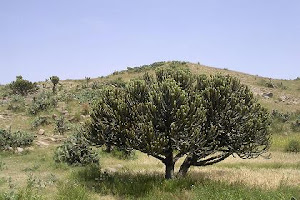








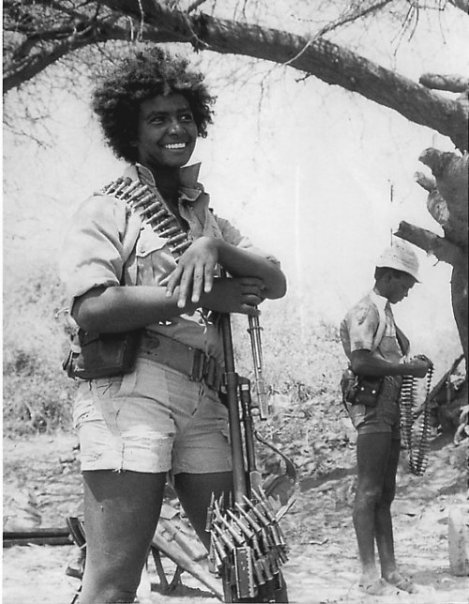



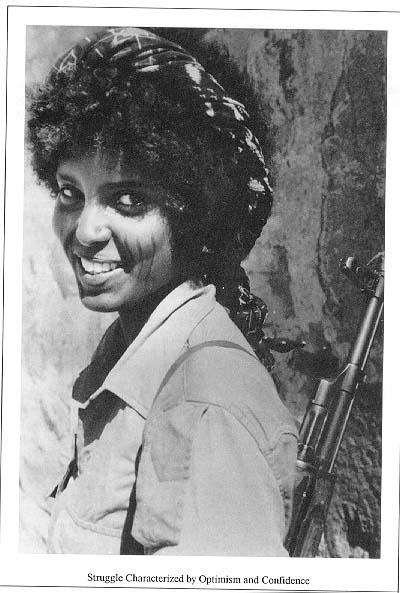







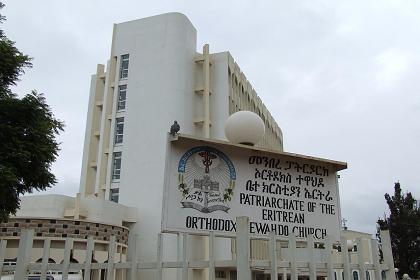




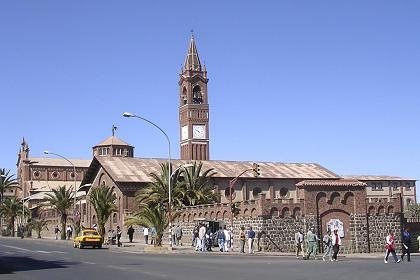
No comments:
Post a Comment